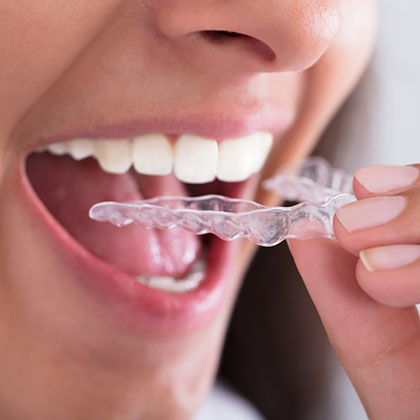
It may seem as if your bones are exactly the same now as when you finished growing as a teenager or young adult. But bones are living tissues that are constantly changing throughout your life. For instance, every three to six months, old and weak bone tissue is dissolved and new bone is built in its place.
As you get older, however, more bone is dissolved than renewed. And if you lose a significant amount of bone mass or density, there’s a good chance you’ll go on to develop a bone condition called osteoporosis – the most common type of bone disease.
According to the Royal Osteoporosis Society, 3.5 million people in the UK are estimated to have osteoporosis, which causes bones to lose strength and break more easily. Indeed, every minute somebody in this country suffers a fragility fracture caused by osteoporosis.
Thankfully your diet and lifestyle can play a big part in keeping your bones healthy. Certain nutrients, for example, are thought to be essential for strong bones. Many people already know that calcium is essential for healthy bones, and lately more of us have become aware of the importance of vitamin D for bone health too. However, experts are also becoming increasingly interested in how another nutrient, best known for its effect on blood clotting, helps improve bone health too: namely vitamin K.
All three nutrients work together to maintain bone health and reduce your risk of having a painful fracture. So for the best chance of keeping your bones strong and healthy, it could be a good idea to make sure you’re getting enough of all of them in your diet by eating foods rich in calcium, vitamin D and vitamin K, and also by taking supplements if you need them.
What is calcium’s role in the body?
Calcium has several important jobs. It’s involved in blood clotting, it helps to regulate muscle contractions (including your heart muscle) and it helps build bones and keeps teeth healthy. Indeed, around 99 per cent of the calcium in your body is found in your bones (ii).
Your bones are mostly made of collagen. But while collagen provides structure to your bones, it’s a soft structure. Calcium, however, is what makes your bones strong. If you don’t get all the calcium your body needs you may develop osteoporosis or another bone condition called osteomalacia if you’re an adult, or rickets if you’re a child.
So how much calcium is considered enough (iii)?
-
Adults aged 19 years or older need 700mg of calcium a day (this includes those who have osteoporosis, though some on osteoporosis drug treatments may need up to 1000mg a day)
-
Women who are breastfeeding need 1250mg a day
-
Adults with coeliac disease need 1000 - 1500mg a day
Some groups of people, including those with osteoporosis, women past the menopause or breastfeeding, people with coeliac disease and people who are on a lactose-free or cow’s milk-free diet are thought to have a higher-than-normal risk of calcium deficiency.
Why do we need vitamin D?
Vitamin D is a fat-soluble vitamin that has several roles in the body, including helping with calcium absorption in the gut. For this reason – and also because it’s needed for bone growth and remodelling – it’s an important bone health nutrient, and if you’re low in vitamin D your bones can become thin, brittle or misshapen. Even if you eat plenty of foods that contain calcium, if you don’t get enough vitamin D it’s unlikely your bones will be healthy because your body won’t be able to absorb the calcium it needs.
Vitamin D is also sometimes called the sunshine vitamin because your skin makes its own vitamin D when it’s exposed to sunlight. In fact, this is where we get most of our vitamin D from, rather than from food (though some foods contain vitamin D).
This means if you don’t spend much time in the sun, or you always keep your skin covered when you’re out and about (either with clothes or by using sun protection cream), you’re at risk of not getting enough vitamin D. People with darker skin living in the UK and other northern hemisphere countries are also at risk of being low in vitamin D, as are shift workers, people who are housebound or live in a care home and people aged 65 or older (this is because the skin becomes less efficient at making vitamin D as you get older).
How much vitamin D to take for bone health?
Because we don’t get enough strong sunlight in the UK during the autumn and winter months, the government recommends everyone considers taking a daily vitamin D supplement at these times of year – plus those at high risk of not getting enough vitamin D should think about taking a supplement year round. According to the NHS, adults and children aged one year and older need 10 micrograms (or 400IU) of vitamin D a day (iv).
Meanwhile there are two main forms of vitamin D found in food and supplements – D2 (ergocalciferol) and D3 (cholecalciferol). Vitamin D3 is the type that your skin makes when it’s exposed to sunlight – it’s also the type in supplements most nutritional therapists recommend because studies have shown D3 is more effective at raising the vitamin D in your blood than D2 (v).
How important is vitamin K?
Also a fat-soluble vitamin, vitamin K is best known for its role in blood clotting. In more recent years, however, scientists have also discovered vitamin K is needed for making important bone proteins such as osteocalcin, which helps maintain bone strength.
There are two main types of vitamin K found in foods and supplements (a third, vitamin K3, is man-made and not suitable for humans). Vitamin K1 is the type that helps with blood clotting. But when it comes to bone health, vitamin K2 is considered the more important of the two (though experts claim not getting enough of both types may be bad for your bones (vi)).
What is the recommended daily intake of vitamin K?
According to the NHS, adults need approximately one microgram of vitamin K a day for each kilogram of their body weight (vii). You can find it in a range of foods, but besides your diet there are a few more reasons why you may have low vitamin K levels, including:
-
You’re taking antibiotics that can affect the absorption of vitamin K in the body
-
You have a health condition that affects your ability to absorb nutrients (for example coeliac disease, ulcerative colitis or cystic fibrosis)
-
You’re older (ageing can affect the absorption of vitamin K)
-
You have frequent gastrointestinal infections (this too affects your vitamin K absorption)
-
You’ve had bariatric surgery
Find out more about vitamin K and its role in promoting bone health in our guide Bone health: the importance of vitamin K.
What does the science say?
Nowadays it’s thought that calcium, vitamin D and vitamin K all work together. You could say they’re a team that helps keep your bones strong:
-
Calcium gives your bones strength
-
Vitamin D helps your body absorb calcium
-
Finally, vitamin K helps the absorbed calcium get into your teeth and bones rather than accumulating in soft tissues where it can cause problems such as heart and kidney disease
The role calcium and vitamin D play in bone health is already well established, with experts confirming that a chronic or severe vitamin D deficiency can lead to hypocalcaemia (low calcium levels in the blood) (viii). Meanwhile some of the studies that present positive cases for calcium, vitamin D and vitamin K in supporting bone health and preventing fractures and osteoporosis include the following:
-
Writing in the International Journal of Endocrinology, researchers reviewed studies on the interplay between vitamins D and K on bone health as well as cardiovascular health, and concluded taking both vitamins together as supplements may be more effective than taking either nutrient on its own (ix).
-
Researchers reviewing the combined effect of vitamin K and calcium on bone health in 10 trials involving 1,346 participants concluded that, when taken together, they have a positive effect on lumbar bone mineral density (x).
-
A study published in the journal Osteoporosis International found that adding vitamin K2 to vitamin D3 with calcium reduced the lifetime probability of at least one fracture in postmenopausal women by 25 per cent, while adding vitamin K1 to vitamin D and calcium reduced it by 20 per cent. The researchers’ conclusion? That lifetime supplementation with vitamin K, vitamin D3 and calcium is likely to reduce fractures and increase survival in postmenopausal women (xi).
-
Researchers writing in 2020 claimed supplementation with calcium and/or vitamin D is key to the management of osteoporosis, and that there’s evidence to suggest vitamin K2 supplements might improve bone quality and reduce fracture risk in people with osteoporosis (xii).
Food sources of calcium, vitamin D and vitamin K
For strong, healthy bones it’s essential to eat a nutritious, balanced diet that includes a wide variety of the following bone-supporting foods:
Calcium
-
Dairy foods including milk, cheese and yoghurt (goat’s milk and sheep’s milk are also good calcium sources)
-
Calcium-fortified plant-based alternatives to milk, cheese and yoghurt
-
Calcium-fortified breakfast cereals
-
Tinned sardines, pilchards and salmon with bones
-
Broccoli, kale, spring greens and other green leafy veg (but not spinach)
-
Bread and other products made with calcium-fortified flour
Vitamin D
-
Oily fish (eg salmon, herring, kippers, sardines, pilchards and trout)
-
Cod liver oil (do not take while pregnant)
-
Egg yolks
-
Meat and offal (eg liver)
-
Fortified plant-based milks
-
Foods fortified with vitamin D such as some breakfast cereals, margarine and yoghurts
However, most of our vitamin D comes from sunlight.
Vitamin K1
-
Spinach
-
Broccoli
-
Asparagus
-
Kale
-
Swiss chard
-
Brussel sprouts
-
Cabbage
-
Plant oils (olive, rapeseed, soya)
Vitamin K2
-
Butter
-
Meat
-
Egg yolks
-
Hard cheese such as Edam and Gouda
-
Natto (a fermented soya food)
-
Soft cheese such as curd cheese
-
Sauerkraut
-
Kefir (fermented milk)
If your diet isn’t always as healthy as it should be or if you have a restricted diet for any reason, you may want to consider taking a supplement to make sure your body gets the nutrients it needs. Calcium, vitamin D and vitamin K are available as individual supplements, but you can also get them as part of a good multivitamin and mineral supplement, or a supplement specially designed to support bone health.
Other vitamins and minerals for bone health
Meanwhile some of the other nutrients that may help keep your bones strong include:
Magnesium
Magnesium is important for bone health because it helps keep bones hard and rigid. In fact 70 per cent of the body’s magnesium is stored in the bones and teeth. Not only that, but magnesium is thought to be necessary to help convert vitamin D into the form that boosts calcium absorption in the body. Many people, however, may not be getting enough magnesium in their diet (sources include nuts, seeds, green leafy veg, whole grains, beans and lentils).
If you’re looking for a magnesium supplement, choose a form of magnesium that’s absorbed more readily than others, such as magnesium citrate.
Zinc
Researchers have shown this mineral plays an essential role in bone metabolism and mineralisation (xiii). Scientists elsewhere claim zinc is an essential mineral required for normal skeletal growth, and that it may also be able to promote bone regeneration (xiv). Like magnesium, the citrate form of zinc is thought to be better absorbed by the body than other forms. You can also try getting more zinc-rich foods in your diet such as dairy foods, shellfish, meat, bread and wheatgerm.
Vitamin C
Healthy bones need collagen, so they also need vitamin C, which contributes to normal collagen formation. Researchers also believe vitamin C has other functions that may help keep bones strong too. For instance, some have claimed the ways in which vitamin C affects how our genes work are central to bone formation, and that it may help prevent common bone-degenerating conditions (xv). Vitamin C is found in a wide variety of fruit and vegetables, but a good-quality supplement can help make sure you’re getting your fair share.
Protein
According to the International Osteoporosis Foundation, adequate dietary protein is essential for optimal bone mass gain during growth and also for preserving bone and muscle mass with ageing (xvi). In older people, for instance, bone mineral density appears to be positively linked with protein intake, with those who eat less protein being more vulnerable to factors that increase their risk of falling.
Foods high in protein include animal foods such as meat, dairy foods, eggs and fish. Meanwhile vegetable sources include soya products, nuts, seeds, grains, beans and lentils. You can also boost your protein intake by drinking protein shakes or adding protein powders to your meals – these can be convenient for those who struggle to get enough protein through food alone.
Want to learn more?
Find out more about issues that affect your bones and more ways to keep them strong and healthy by browsing the bone health section of our pharmacy health library.
References:
-
Available online: https://theros.org.uk/what-we-do/media-centre/media-toolkit/
-
Flynn A. et al., The role of dietary calcium in bone health. Proc Nutr Soc. 2003 Nov ;62(4):851-8. Available online: https://www.cambridge.org/core/journals/proceedings-of-the-nutrition-society/article/role-of-dietary-calcium-in-bone-health/5C6665E8AB0DCCE494003A99CB26A78C
-
Available online: https://www.bda.uk.com/resource/calcium.html
-
Available online: https://www.nhs.uk/conditions/vitamins-and-minerals/vitamin-d/
-
Tripkovic L. et al., Comparison of vitamin D2 and vitamin D3 supplementation in raising serum 25-hydroxyvitamin D status: a systematic review and meta-analysis1,2,3. Am J Clin Nutr. 2012 Jun ;95(6):1357-1364. Available online: https://www.ncbi.nlm.nih.gov/pmc/articles/PMC3349454/
Glendenning P. et al., Calculated free and bioavailable vitamin D metabolite concentrations in vitamin D-deficient hip fracture patients after supplementation with cholecalciferol and ergocalciferol. Bone. 2013 Oct ;56(2):271-5. Available online: https://www.sciencedirect.com/science/article/abs/pii/S8756328213002305?via=ihub -
Available online: https://americanbonehealth.org/nutrition/vitamin-k2-plays-key-role-in-bone-health/
-
Available online: https://www.nhs.uk/conditions/vitamins-and-minerals/vitamin-k/
-
Sizar O et al. Vitamin D Deficiency. Available online: https://www.ncbi.nlm.nih.gov/books/NBK532266/
-
van Ballegooijen AJ et al., The Synergistic Interplay between Vitamins D and K for Bone and Cardiovascular Health: A Narrative Review. Int J Endocrinol 2017;2017:7454376. Available online: https://www.ncbi.nlm.nih.gov/pmc/articles/PMC5613455/
-
Hu L et al., The combined effect of vitamin K and calcium on bone mineral density in humans: a meta-analysis of randomized controlled trials. J Orthop Surg Res 2021;15:592. Available online: https://www.ncbi.nlm.nih.gov/pmc/articles/PMC8515712/
-
Gajic-Veljanoski O et al., Vitamin K supplementation for the primary prevention of osteoporotic fractures: is it cost-effective and is future research warranted? Osteoporosis Int 2012 March;23, 2681-2692. Available online: https://link.springer.com/article/10.1007/s00198-012-1939-4
-
Capozzi A, Scambia G, Lello S, Calcium, vitamin D, vitamin K2, and magnesium supplementation and skeletal health. Maturitas 2020 Oct;140:55-63. Available online: https://www.maturitas.org/article/S0378-5122(20)30284-X/fulltext
-
Amin N, et al., Zinc supplements and bone health: The role of the RANKL-RANK axis as a therapeutic target. J Trace Elem Med Biol 2021 Jan;57:126417. Available online: https://www.sciencedirect.com/science/article/abs/pii/S0946672X19304134
-
O'Connor JP, et al., Zinc as a Therapeutic Agent in Bone Regeneration. Materials 2020 May;13(10):2211. Available online: https://www.ncbi.nlm.nih.gov/pmc/articles/PMC7287917/
-
Thaler R, et al., Vitamin C epigenetically controls osteogenesis and bone mineralization. Nat Commun 2022 Oct 6;13(1):5883. Available online: https://www.nature.com/articles/s41467-022-32915-8
-
Available online: https://www.osteoporosis.foundation/health-professionals/prevention/nutrition/protein-and-other-nutrients
Related Posts
Disclaimer: The information presented by Nature's Best is for informational purposes only. It is based on scientific studies (human, animal, or in vitro), clinical experience, or traditional usage as cited in each article. The results reported may not necessarily occur in all individuals. Self-treatment is not recommended for life-threatening conditions that require medical treatment under a doctor's care. For many of the conditions discussed, treatment with prescription or over the counter medication is also available. Consult your doctor, practitioner, and/or pharmacist for any health problem and before using any supplements or before making any changes in prescribed medications.

Christine
Christine Morgan has been a freelance health and wellbeing journalist for almost 20 years, having written for numerous publications including the Daily Mirror, S Magazine, Top Sante, Healthy, Woman & Home, Zest, Allergy, Healthy Times and Pregnancy & Birth; she has also edited several titles such as Women’ Health, Shine’s Real Health & Beauty and All About Health.
View More



